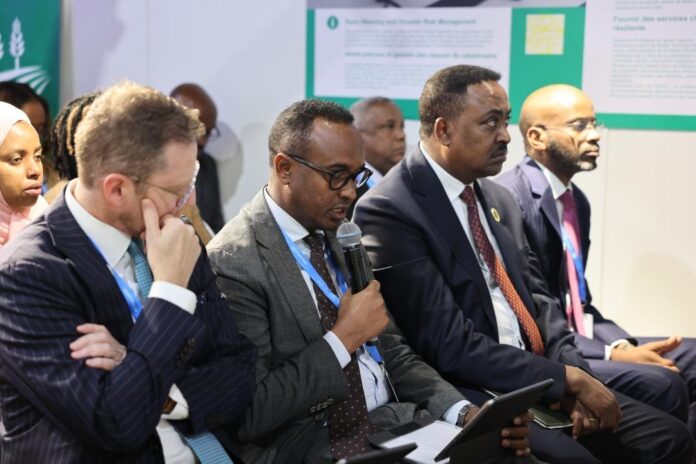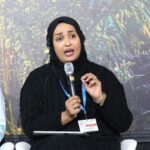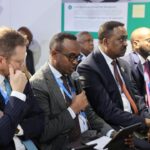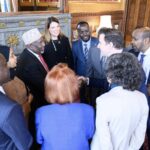BAKU, Azerbaijan — At the heart of the COP29 climate summit, Mohamud Moalim, the Commissioner of Somalia’s Disaster Management Agency (SoDMA), took to the stage to deliver a stark warning about the implications of La Niña for the Horn of Africa. His impassioned plea for international assistance and preparedness was a focal point of discussions on November 14th.
Moalim detailed how La Niña, a weather pattern characterized by the cooling of the ocean surface temperatures in the central and eastern tropical Pacific, could exacerbate drought conditions across East Africa. “We are on the brink of facing another cycle of drought which could lead to devastating impacts on our communities, agriculture, and water resources,” Moalim said. He stressed the importance of bolstering early warning systems, which he argued are crucial for preempting the worst effects of these climatic shifts.
During his speech, Moalim called for investment in technology, pushing for advanced meteorological technologies and communication systems that can provide timely and accurate warnings to rural and urban populations alike.
He urged wealthier nations and international bodies to fulfill their commitments to climate finance, highlighting that adaptation funds are essential for regions like Somalia, where climate resilience infrastructure is desperately needed.
Additionally, he advocated for the empowerment of local governments and communities to play an active role in climate adaptation through education and capacity building.
The commissioner’s remarks resonated with many attendees, as La Niña is expected to intensify food insecurity in an area already grappling with the effects of climate change, conflict, and economic instability.
Recent studies have shown that La Niña events have historically led to reduced rainfall in the region, particularly from March to May, which are crucial months for agriculture in East Africa.
Somalia’s participation in the summit underscores a broader narrative at COP29, where there is a significant focus on the disproportionate burden placed on less-developed countries by climate change.
Moalim’s address was part of a series of speeches by leaders from the region, all advocating for a more equitable distribution of the global effort to combat and adapt to climate change.
The call to action by Moalim at COP29 is not just about preparing for La Niña but is emblematic of the urgent need for global solidarity in addressing the multifaceted challenges posed by climate variability.
His speech has sparked discussions on how to better integrate early warning systems with local and international efforts to enhance resilience against climate-induced disasters.






